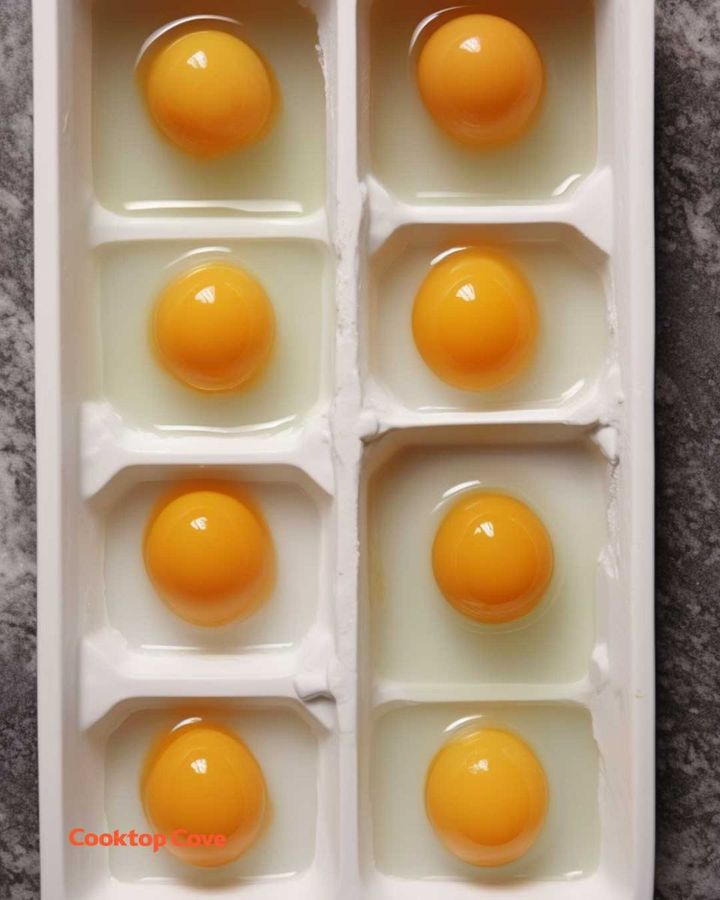Eggs are a staple in many households, prized for their versatility and nutritional value. While buying eggs by the dozen is common, have you ever considered buying them in bulk and freezing them for later use? This intriguing hack has its merits, offering convenience, cost savings, and a longer shelf life for this essential kitchen ingredient.
In this article, we’ll delve into the reasons why you might want to buy eggs in bulk and freeze them for future use and discuss whether this practice is recommended.
Advertisement
The Benefits of Buying Eggs in Bulk
Cost Savings
One of the primary reasons to buy eggs in bulk is the cost savings. When purchased in larger quantities, eggs often come at a lower per-unit price. This can be particularly advantageous if your household consumes eggs regularly or if you frequently use them in cooking and baking. Buying in bulk can help you save money in the long run.
Convenience
Buying eggs in bulk and freezing them allows you to have a readily available supply of eggs on hand at all times. This can be a game-changer when you’re faced with last-minute meal preparations or unexpected guests. It eliminates the need for frequent trips to the grocery store just to restock on eggs.
read more on next page
Extended Shelf Life
Contrary to popular belief, you can indeed freeze eggs. Eggs have a relatively short shelf life when stored in the refrigerator, typically about three to five weeks. However, when properly frozen, they can be stored for up to six months or even longer without losing their quality. This can help you reduce food waste and always have fresh eggs at your disposal.
How to Freeze Eggs
Freezing eggs is a simple process:
1. Crack an egg into each separate mold of ice cube tray. Each compartment should hold the equivalent of one egg.
2. Place the tray in the freezer and allow the eggs to freeze solid.
3. Once frozen, pop the egg portions out of the tray and transfer them to a labeled freezer bag or container. Be sure to date the container for reference.
How to Use Frozen Eggs
Before using frozen eggs, you’ll need to thaw them. There are a few methods to do this:
At Room Temperature: Just leave the frozen egg cubes in a bowl and have it come to room temperature.
In the Refrigerator: Transfer the frozen egg portions from the freezer to the refrigerator and allow them to thaw overnight or for at least 12 hours.
In Cold Water: Place the frozen egg portions in a sealed, airtight bag and submerge them in cold water. Change the water every 30 minutes until the eggs are thawed. This method is quicker than using the refrigerator and usually takes a couple of hours.
In the Microwave: If you’re in a hurry, you can thaw frozen eggs in the microwave using the defrost or low power setting. Be cautious not to cook the eggs during this process, as they can become partially cooked.
Cooking with Thawed Eggs
Scrambled Eggs: Thawed eggs work well for making scrambled eggs. Whisk them with a bit of salt and pepper, then cook them in a pan with butter or oil over medium-low heat until they reach your desired level of doneness.
Omelets: You can use thawed eggs to make omelets with various fillings like cheese, vegetables, or ham. Whisk the eggs, pour them into a preheated pan, add your fillings, and fold the omelet when it’s almost set.
Baking: Thawed eggs are suitable for baking recipes that require eggs as an ingredient. Simply use the thawed eggs as you would fresh ones in your recipes for cakes, muffins, quiches, and other baked goods.
Frittatas: Frittatas, a type of Italian omelet, can be made using thawed eggs and a variety of ingredients such as vegetables, cheese, and meats. Pour the whisked eggs into an oven-safe skillet, add your desired ingredients, and bake until the frittata is set.
Custards and Puddings: Thawed eggs can also be used for making custards and puddings. Follow your recipe’s instructions, and incorporate the thawed eggs as needed.
read more on next page
ADVERTISEMENT

